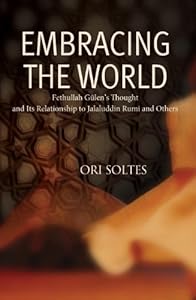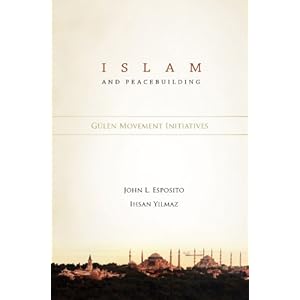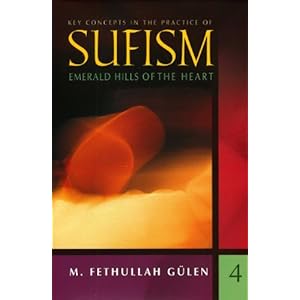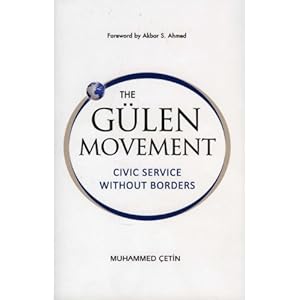Our first and foremost duty is to discover ourselves and then turn toward God through the illuminated prism of our nature. People who remain unaware of their true nature, and who therefore cannot establish any contact with their Creator, spend their lives like coolies who are ignorant of the treasure they are carrying on their backs.
Those who want to reform the world must first reform themselves. If they want to lead others to a better world, they must purify their inner worlds of hatred, rancor, and jealousy, and adorn their outer worlds with virtue [through reflection and self-criticism, among other practices].
The Role of Reflection
Reflection literally means to think on a subject deeply, systematically, and in great detail. In a spiritual context, it signifies reflection, which is the heart’s lamp, the spirit’s food, and the spirit of knowledge. Reflection allows believers to discern what is good and evil, beneficial and harmful, beautiful and ugly, and makes the universe a book to study and reveals the Qur’an’s deeper meanings more clearly.
Reflection is a vital step in becoming aware of what is going on around us and of drawing conclusions from it. It opens the door of experience, nourishes the truth, and opens the pupil of the heart’s eye. As Prophet Muhammad stated: “No act of worship is as meritorious as reflection. So reflect on God’s bounties and the works of His Power, but do not try to reflect on His Essence, for you will never be able to do that.”
The verse: They reflect on the creation of the heavens and Earth (3:190) presents the Book of the Universe (creation itself) with its way of creation, the peculiarities of its letters and words, the harmony and coherence of its sentences, and its firmness as a whole. By calling us to reflect upon the universe, the Qur’an shows us one of the most beneficial methods of reflection: to reflect on and study the Qur’an, and to follow it in all our thoughts and actions; to discover the Divine mysteries in the Book of the Universe and, through every new discovery that deepens and unfolds the true believer, to live a life full of spiritual pleasure along a way of light extending from belief to knowledge of God and therefrom to love of God; and then to progress to the Hereafter and God’s pleasure and approval-this is the way to become a perfect, universal human being.
Reflect upon every scientific field, but remember that the rational and experimental sciences are only a first step or a means to reach reflection’s final target: knowledge of God. Studying existence as if it were a book to be reflected upon can engender the desired results and provide ceaseless information and inspiration, but only if one admits that God creates all things and their attributes.
Reflection must be based on and start with belief in God as the Originator of creation. Doing so will enable one to progress uninterruptedly and without end. Encouraging people to engage in reflection focused upon a determined aim entails urging them to learn and use the methods of sciences that study how existence is manifested. Since everything belongs to God, studying every incident, item, and quality also means studying how the Creator deals with existence. Those who study and accurately comprehend this book of existence, and then live according to it, will follow the way of guidance and righteousness all the way to the final station of Paradise.
The Role of Self-Criticism
Self-criticism literally means reckoning, settling accounts, and self-interrogation. In a spiritual context, however, it describes believers who constantly analyze their deeds and thoughts in the hope that correcting them will result in increased closeness to God. They thank God for what they have done, and seek His forgiveness through repentance and remorse. Self-criticism is the very important and serious attempt of asserting personal loyalty to God.
It also may be described as seeking and discovering their inner and spiritual depth, and exerting the necessary spiritual and intellectual effort to acquire true human values and to develop the sentiments that encourage and nourish them. This is how they distinguish between what is good and bad, as well as what is beneficial and harmful, and maintain upright hearts. Furthermore, it enables believers to evaluate the present and prepare for the future. Engaging in self-criticism also enables believers to achieve a steady relationship with God, for this relationship depends on their ability to live a spiritual life and remain aware of what takes place in their inner world. Success preserves their celestial nature as true human beings and continually regenerates their inner senses and feelings.
Believers cannot be indifferent to self-criticism. On the one hand, they try to revive their ruined pasts with the breezes of hope and mercy blown by such Divine calls as: Repent to God (24:31) and: Turn to Your Lord repentant (39:54) that echo in their consciences. On the other hand, warnings as frightening as thunderbolts and as exhilarating as mercy are contained in such verses as: O you who believe! Be conscious of God and observe your duty to Him. And let every soul consider what it has prepared for the morrow (59:18) bring believers to their senses and make them once again strive to avoid sin.
Taking each moment of life to be a time of germination, they seek ever-greater depth in their spirits and hearts with insight and consciousness arising from belief. Even if sometimes pulled down by their carnal dimension, they remain alert: Those who fear God and observe His commandments, when a passing stroke from Satan troubles them, they immediately remember (God), and lo! they are all aware (7:201).
Self-criticism attracts Divine Mercy and Favor, which enables believers to deepen their belief and servanthood, to practice Islam successfully, and to attain nearness to God and eternal happiness. It also prevents despair, which ultimately leads to reliance on personal acts of worship to be saved from Divine punishment in the Hereafter.1
As self-criticism opens the door to spiritual peace and tranquillity, it also causes a greater consciousness of God and His punishment. Those who criticize themselves always hear the echo of the Prophetic warning: “If you knew what I know, you would laugh little but weep a lot.” Self-criticism continuously inspires anxiety in the hearts of those who are fully aware of the heavy responsibility they feel-the anxiety voiced as in: “If only I had been a tree cut into pieces.” While such a degree of self-criticism is hard to attain, it is also difficult for those who do not do so [to be sure that they will be able] to live today better than yesterday, and tomorrow better than today.
Constant self-criticism and self-reprimand show the perfection of a believer’s belief. Those who strive to reach human perfection are conscious of this life and spend every moment of it struggling with their carnal natures. They do not allow everything that occurs to their hearts and minds to enter, for they understand the necessity of self-control. Self-criticism and evening reviews of the day’s activities are constant, even for those acts that seem most sensible and acceptable, and new resolutions are made. Believers knits the “lace of his or her life” with the “threads” of self-criticism and self-accusation.
So long as believers show such loyalty and faithfulness to the Lord and live in such humility, the doors of heaven will be thrown open and an invitation will be extended: “Come, O faithful one. You have intimacy with Us. This is the station of intimacy. We have found you a faithful one.” Every day they are honored with a new, heavenly journey in the spirit. It is God Himself Who swears by such a purified soul in: Nay, I swear by the self-accusing soul! (75:2).
These new people will conquer their selves, thoughts, and hearts, and those of others, and will discover the unknown. They will regard any time spent not taking a new step into the depths of the self and the universe as wasted. As they remove, through faith and knowledge, the veils covering the face of reality, they will become even more eager to advance further. With the messages of answers received from the heavens, Earth, and the seas, they will continue to journey until they return to their Creator
Footnotes
1 If believers despair (of Divine mercy) concerning their eternal life because of their sins, relief from Divine punishment is sought. They then remember and so rely on past good deeds. However, this way is utterly inadequate, for only through Divine mercy can one be saved from God’s punishment and enter Paradise.
Those who want to reform the world must first reform themselves. If they want to lead others to a better world, they must purify their inner worlds of hatred, rancor, and jealousy, and adorn their outer worlds with virtue [through reflection and self-criticism, among other practices].
The Role of Reflection
Reflection literally means to think on a subject deeply, systematically, and in great detail. In a spiritual context, it signifies reflection, which is the heart’s lamp, the spirit’s food, and the spirit of knowledge. Reflection allows believers to discern what is good and evil, beneficial and harmful, beautiful and ugly, and makes the universe a book to study and reveals the Qur’an’s deeper meanings more clearly.
Reflection is a vital step in becoming aware of what is going on around us and of drawing conclusions from it. It opens the door of experience, nourishes the truth, and opens the pupil of the heart’s eye. As Prophet Muhammad stated: “No act of worship is as meritorious as reflection. So reflect on God’s bounties and the works of His Power, but do not try to reflect on His Essence, for you will never be able to do that.”
The verse: They reflect on the creation of the heavens and Earth (3:190) presents the Book of the Universe (creation itself) with its way of creation, the peculiarities of its letters and words, the harmony and coherence of its sentences, and its firmness as a whole. By calling us to reflect upon the universe, the Qur’an shows us one of the most beneficial methods of reflection: to reflect on and study the Qur’an, and to follow it in all our thoughts and actions; to discover the Divine mysteries in the Book of the Universe and, through every new discovery that deepens and unfolds the true believer, to live a life full of spiritual pleasure along a way of light extending from belief to knowledge of God and therefrom to love of God; and then to progress to the Hereafter and God’s pleasure and approval-this is the way to become a perfect, universal human being.
Reflect upon every scientific field, but remember that the rational and experimental sciences are only a first step or a means to reach reflection’s final target: knowledge of God. Studying existence as if it were a book to be reflected upon can engender the desired results and provide ceaseless information and inspiration, but only if one admits that God creates all things and their attributes.
Reflection must be based on and start with belief in God as the Originator of creation. Doing so will enable one to progress uninterruptedly and without end. Encouraging people to engage in reflection focused upon a determined aim entails urging them to learn and use the methods of sciences that study how existence is manifested. Since everything belongs to God, studying every incident, item, and quality also means studying how the Creator deals with existence. Those who study and accurately comprehend this book of existence, and then live according to it, will follow the way of guidance and righteousness all the way to the final station of Paradise.
The Role of Self-Criticism
Self-criticism literally means reckoning, settling accounts, and self-interrogation. In a spiritual context, however, it describes believers who constantly analyze their deeds and thoughts in the hope that correcting them will result in increased closeness to God. They thank God for what they have done, and seek His forgiveness through repentance and remorse. Self-criticism is the very important and serious attempt of asserting personal loyalty to God.
It also may be described as seeking and discovering their inner and spiritual depth, and exerting the necessary spiritual and intellectual effort to acquire true human values and to develop the sentiments that encourage and nourish them. This is how they distinguish between what is good and bad, as well as what is beneficial and harmful, and maintain upright hearts. Furthermore, it enables believers to evaluate the present and prepare for the future. Engaging in self-criticism also enables believers to achieve a steady relationship with God, for this relationship depends on their ability to live a spiritual life and remain aware of what takes place in their inner world. Success preserves their celestial nature as true human beings and continually regenerates their inner senses and feelings.
Believers cannot be indifferent to self-criticism. On the one hand, they try to revive their ruined pasts with the breezes of hope and mercy blown by such Divine calls as: Repent to God (24:31) and: Turn to Your Lord repentant (39:54) that echo in their consciences. On the other hand, warnings as frightening as thunderbolts and as exhilarating as mercy are contained in such verses as: O you who believe! Be conscious of God and observe your duty to Him. And let every soul consider what it has prepared for the morrow (59:18) bring believers to their senses and make them once again strive to avoid sin.
Taking each moment of life to be a time of germination, they seek ever-greater depth in their spirits and hearts with insight and consciousness arising from belief. Even if sometimes pulled down by their carnal dimension, they remain alert: Those who fear God and observe His commandments, when a passing stroke from Satan troubles them, they immediately remember (God), and lo! they are all aware (7:201).
Self-criticism attracts Divine Mercy and Favor, which enables believers to deepen their belief and servanthood, to practice Islam successfully, and to attain nearness to God and eternal happiness. It also prevents despair, which ultimately leads to reliance on personal acts of worship to be saved from Divine punishment in the Hereafter.1
As self-criticism opens the door to spiritual peace and tranquillity, it also causes a greater consciousness of God and His punishment. Those who criticize themselves always hear the echo of the Prophetic warning: “If you knew what I know, you would laugh little but weep a lot.” Self-criticism continuously inspires anxiety in the hearts of those who are fully aware of the heavy responsibility they feel-the anxiety voiced as in: “If only I had been a tree cut into pieces.” While such a degree of self-criticism is hard to attain, it is also difficult for those who do not do so [to be sure that they will be able] to live today better than yesterday, and tomorrow better than today.
Constant self-criticism and self-reprimand show the perfection of a believer’s belief. Those who strive to reach human perfection are conscious of this life and spend every moment of it struggling with their carnal natures. They do not allow everything that occurs to their hearts and minds to enter, for they understand the necessity of self-control. Self-criticism and evening reviews of the day’s activities are constant, even for those acts that seem most sensible and acceptable, and new resolutions are made. Believers knits the “lace of his or her life” with the “threads” of self-criticism and self-accusation.
So long as believers show such loyalty and faithfulness to the Lord and live in such humility, the doors of heaven will be thrown open and an invitation will be extended: “Come, O faithful one. You have intimacy with Us. This is the station of intimacy. We have found you a faithful one.” Every day they are honored with a new, heavenly journey in the spirit. It is God Himself Who swears by such a purified soul in: Nay, I swear by the self-accusing soul! (75:2).
These new people will conquer their selves, thoughts, and hearts, and those of others, and will discover the unknown. They will regard any time spent not taking a new step into the depths of the self and the universe as wasted. As they remove, through faith and knowledge, the veils covering the face of reality, they will become even more eager to advance further. With the messages of answers received from the heavens, Earth, and the seas, they will continue to journey until they return to their Creator
Footnotes
1 If believers despair (of Divine mercy) concerning their eternal life because of their sins, relief from Divine punishment is sought. They then remember and so rely on past good deeds. However, this way is utterly inadequate, for only through Divine mercy can one be saved from God’s punishment and enter Paradise.
SOURCE: http://www.fountainmagazine.com/Issuelead/detail/fethullah-gulen/The-Necessity-of-Reflection-and-Self-Criticism







